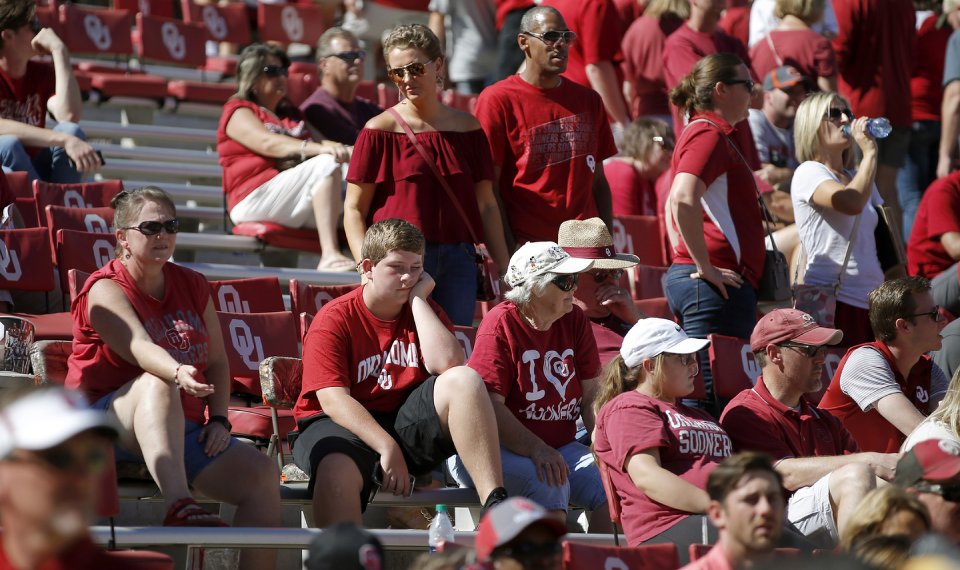News
What does it mean to love football amid concussion and sexual assault concerns?

Source: Bryan Terry/The Oklahoman
Across the state, fans, who may have recently visited sites such as Betfred Near Me, are already gearing up to watch the Oklahoma Sooners (and yes, the OSU Cowboys) take the field in their first football game of the season. Oklahoma’s colleges have long been known for their football programs, which have brought home several national championships throughout the years.
But, as the new season dawns, many are beginning to question their loyalty to not just their favorite team, but the entire sport of football.
Growing concerns about the safety of football and questions surrounding whether locker-room culture may be enabling sexual assault have cast a pall over the sport, and the unease is beginning to reach the college campuses where football pride is typically strongest.
In an editorial for the New York Times, Oklahoma University senior Tim Hatton describes how he is dealing with increasing friction between his long-standing love for OU football and the headlines coming from his favorite team and sport.
While citing recent events like the death of Jordan McNair, a University of Maryland football player who died after collapsing during a workout earlier this year, Hatton explains that he recognizes death is a rare consequence of the sport, but the fate of many former football players may be far worse.
A shocking number of former college and professional football players have been posthumously diagnosed with chronic traumatic encephalopathy (CTE), a degenerative brain disease linked to repeated head trauma. Initially, it was believed that CTE was strictly caused by an accumulation of concussions over time. However, recent research suggests even football players who have never been diagnosed with a concussion may be at risk due to accumulating damage from the countless hits and crashes a player experiences throughout a season.
Hatton also recalls feeling uncomfortable with the school’s apparent disregard for sexual assault. In his freshman year, Oklahoma State came under fire for recruiting a wide receiver who had previously been kicked off the University of Missouri team for pushing his girlfriend down a set of stairs. That same year, freshman running back Joe Mixon was arrested for punching a woman in an altercation at a restaurant. Mixon was suspended for one year.
Mixon is now playing in the NFL for the Cincinnati Bengals. The wide receiver who had been kicked off the University of Missouri, Dorial Green-Beckham, is currently a free agent who was previously drafted by the Tennessee Titans.
Like many football fans across the country, Hatton is struggling to reconcile his awareness of these issues with the love of the sport.
“In the face of all of these problems, can I continue to cheer? Every year so far, I’ve chosen to be a fan,” he says. “But as the first game of the season approaches on Saturday, that decision is harder than it’s ever been.”
Read Tim Hatton’s editorial ‘Is it O.K. to be a football fan in 2018’ in the New York Times here.



